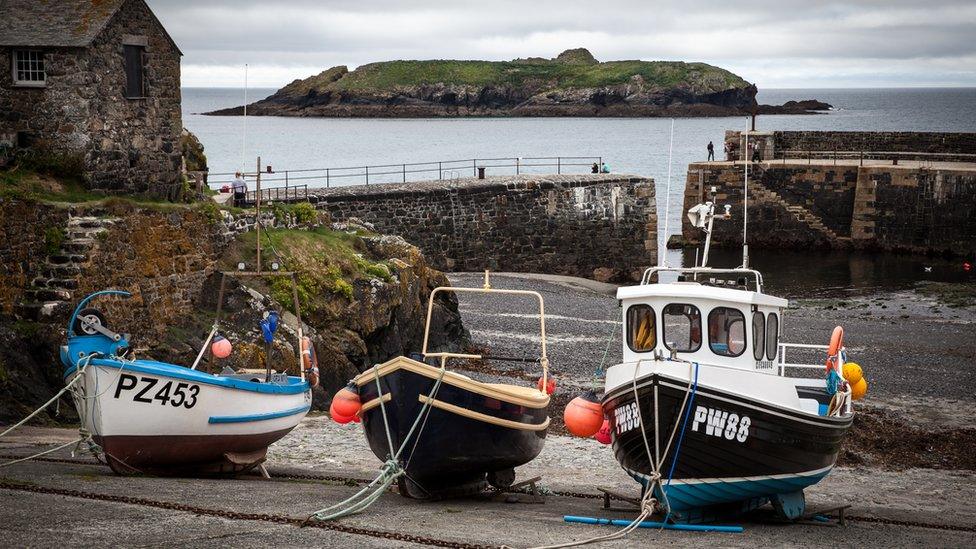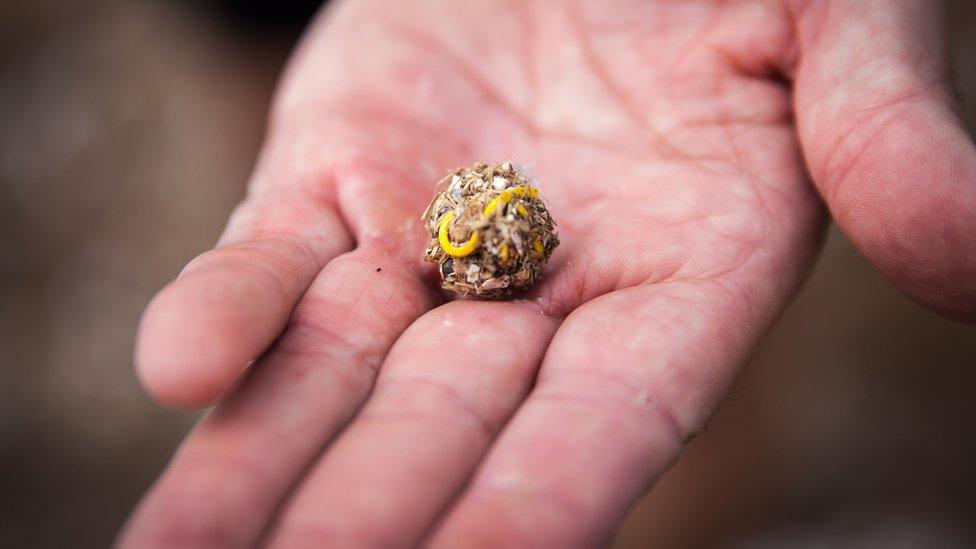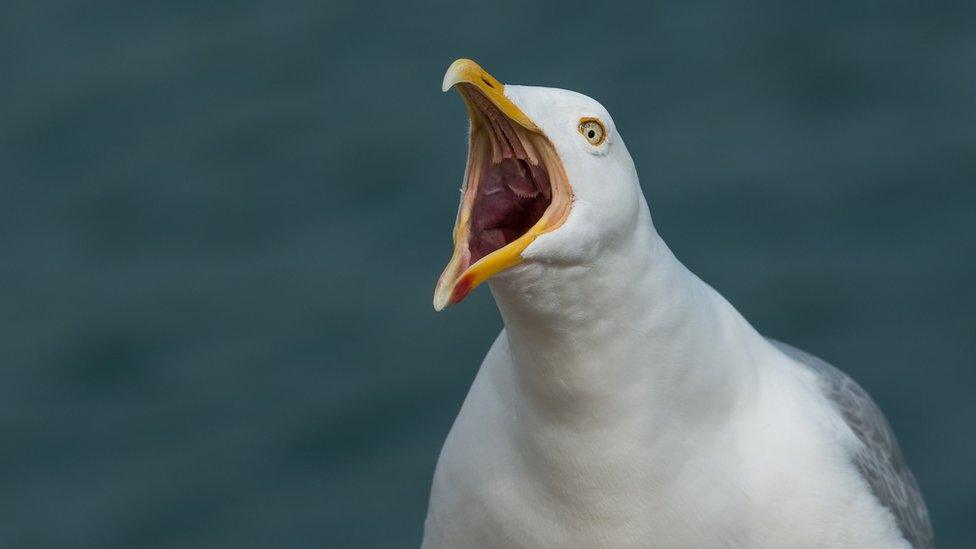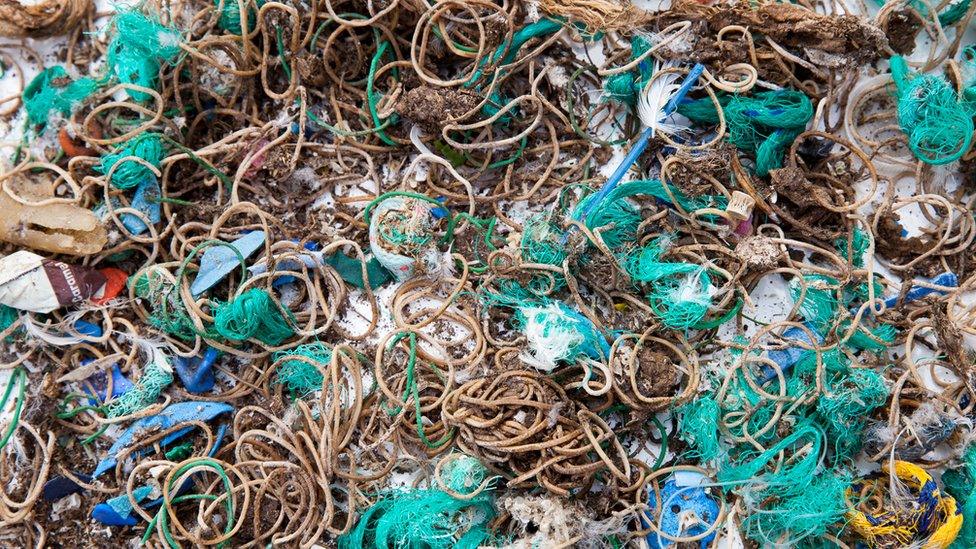Mullion Island littered with thousands of elastic bands
- Published

Mullion Island provides a sanctuary for nesting seabirds including great black-backed gulls, herring gulls, cormorants and shags
An island so remote a permit is needed to visit has been littered with thousands of elastic bands.
National Trust rangers were initially baffled, but now believe seabirds are responsible.
Experts monitoring Mullion Island off the Cornish coast found large numbers of tan, yellow and green bands in regurgitated pellets.
They say gulls may have mistaken the bands for worms while feeding in fields on the mainland.
The pellets are regurgitated by birds, including great black-backed gulls and herring gulls, which roost on the island.

A pellet of undigested food containing a yellow elastic band
It is thought the bands are used for creating bunches of the flowers which are grown in the region.
Area ranger for the National Trust Rachel Holder said: "Ingested plastic and rubber is another factor in a long list of challenges which our gulls and other seabirds must contend with just to survive.
"Despite being noisy and boisterous and seemingly common, gulls are on the decline.

Herring gulls and other birds are thought to have swallowed the bands on the mainland
"Places like Mullion Island should be sanctuaries for our seabirds, so it's distressing to see them become victims of human activity."
Small bundles of green fishing net and twine were also uncovered among the undigested food.
One gull was found to have died after becoming caught by a 10cm fishing hook.
Mullion Island is a small, rocky outpost off the Lizard Peninsula, and is cared for by the National Trust.

Thousands of bands and handfuls of fishing twine were collected in one hour
Public access to the island is forbidden.
The trust is calling on businesses to consider how they dispose of plastic, latex and other materials that could cause harm to wildlife.
Lizzy Carlyle, from the charity, said: "Single-use materials are having an alarming impact on our country's most remote places.
"It's up to all of us to take responsibility for how we use and dispose of these items."